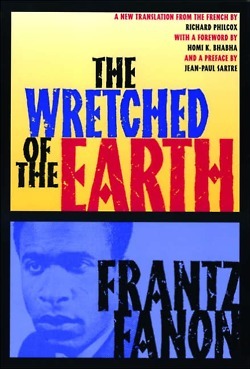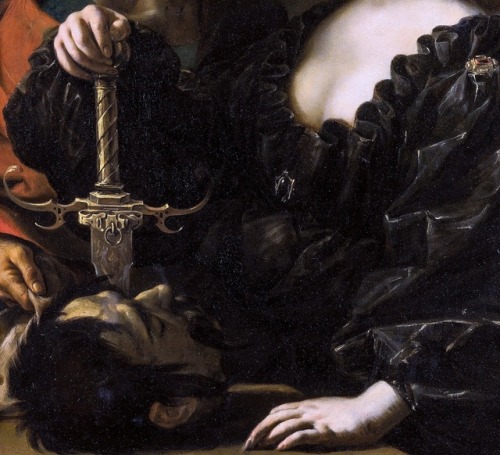But Our Notebooks Give Us Away, For However Dutifully We Record What We See Around Us, The Common Denominator
But our notebooks give us away, for however dutifully we record what we see around us, the common denominator of all we see is always, transparently, shamelessly, the implacable “I.” We are not talking here about the kind of notebook that is patently for public consumption, a structural conceit for binding together a series of graceful pensées; we are talking about something private, about bits of the mind’s string too short to use, an indiscriminate and erratic assemblage with meaning only for its maker. And sometimes even the maker has difficulty with the meaning.
Joan Didion, from On Keeping A Notebook in: Slouching Towards Bethlehem
More Posts from Ro0hafz4 and Others

"'Will Not Let Die': Debilitation and Inhuman Biopolitics in Palestine" in The Right to Maim, Jasbir Puar




Four books by Frantz Fanon - Downloadable
The Wretched of the Earth. New York: Grove, 2004. Here it is.
Black Skin, White Masks. London: Pluto, 2008. Here it is.
A Dying Colonialism. New York, NY: Grove, 2007. Here it is.
Toward the African Revolution. New York, NY: Grove, 1994. Here it is.
If you haven’t read Fanon, now is the time. The zip file password is: archive.
What is your favorite obscure Greek mythological fact
Hm, probably the Orphic fragment that says that Persephone was born with a monstrous appearance (fragment 87 according to Athanassakis, fragment 58 in the translation of Otto Kern’s compilation of fragments at HellenicGods.org):
…"of the daughter of Zeus, whom he begat of his mother Rhea; or of Demeter, as having two eyes in the natural order, and two in her forehead, and the face of an animal on the back part of her neck, and as having also horns, so that Rhea, frightened at her monster of a child, fled from her, and did not give her the breast (θηλη), whence mystically she is called Athêlâ, but commonly Phersephoné and Koré"…
It's so totally different from all other versions that only describe her as very beautiful (as goddesses tend to be). Sometimes I regret that I didn't give my Persephone horns.
Also forever grumbling about the fact that people want to divorce the myth but more specifically the Homeric Hymn to Demeter from its cultic purposes; Eleusis and the Eleusinian Mysteries play a major role in the story and this has a huge effect on the storytelling, and if we divorce all of the themes it imposes on Persephone/Demeter’s storylines from their myth in this adaptation, you lose a significant amount of context and meaning
“It’s not ‘natural’ to speak well, eloquently, in an interesting articulate way. People living in groups, families, communes say little–have few verbal means. Eloquence–thinking in words–is a byproduct of solitude, deracination, a heightened painful individuality.”
— Susan Sontag, As Consciousness Is Harnessed to Flesh (via the-book-diaries)
-
 andromedism liked this · 3 weeks ago
andromedism liked this · 3 weeks ago -
 girlionceknew reblogged this · 4 weeks ago
girlionceknew reblogged this · 4 weeks ago -
 airandthoughts reblogged this · 1 month ago
airandthoughts reblogged this · 1 month ago -
 faultypoetry reblogged this · 1 month ago
faultypoetry reblogged this · 1 month ago -
 onlyfawnz liked this · 1 month ago
onlyfawnz liked this · 1 month ago -
 glowrybox liked this · 1 month ago
glowrybox liked this · 1 month ago -
 drinkangelpiss reblogged this · 1 month ago
drinkangelpiss reblogged this · 1 month ago -
 drinkangelpiss liked this · 1 month ago
drinkangelpiss liked this · 1 month ago -
 originalromanticsir liked this · 1 month ago
originalromanticsir liked this · 1 month ago -
 mossymystic4444 liked this · 1 month ago
mossymystic4444 liked this · 1 month ago -
 offthefloridakeys liked this · 1 month ago
offthefloridakeys liked this · 1 month ago -
 beyondamityville liked this · 1 month ago
beyondamityville liked this · 1 month ago -
 tigerbeetles liked this · 1 month ago
tigerbeetles liked this · 1 month ago -
 wistfulwonders liked this · 1 month ago
wistfulwonders liked this · 1 month ago -
 mayb-bby reblogged this · 1 month ago
mayb-bby reblogged this · 1 month ago -
 mayb-bby liked this · 1 month ago
mayb-bby liked this · 1 month ago -
 ripslit liked this · 1 month ago
ripslit liked this · 1 month ago -
 89rooms liked this · 1 month ago
89rooms liked this · 1 month ago -
 satanlikedmymoxie reblogged this · 1 month ago
satanlikedmymoxie reblogged this · 1 month ago -
 satanlikedmymoxie liked this · 1 month ago
satanlikedmymoxie liked this · 1 month ago -
 virgindeidad liked this · 1 month ago
virgindeidad liked this · 1 month ago -
 cloudsourcing liked this · 1 month ago
cloudsourcing liked this · 1 month ago -
 tarttism reblogged this · 1 month ago
tarttism reblogged this · 1 month ago -
 tm0726 reblogged this · 1 month ago
tm0726 reblogged this · 1 month ago -
 idkwhyiamhereagainn liked this · 1 month ago
idkwhyiamhereagainn liked this · 1 month ago -
 capricanis liked this · 1 month ago
capricanis liked this · 1 month ago -
 hopesandovalgf liked this · 1 month ago
hopesandovalgf liked this · 1 month ago -
 theftandwanderingaroundlost9 liked this · 1 month ago
theftandwanderingaroundlost9 liked this · 1 month ago -
 greenvelvetchaise liked this · 1 month ago
greenvelvetchaise liked this · 1 month ago -
 fl3eting liked this · 1 month ago
fl3eting liked this · 1 month ago -
 iliacobserva reblogged this · 1 month ago
iliacobserva reblogged this · 1 month ago -
 bobablunt reblogged this · 1 month ago
bobablunt reblogged this · 1 month ago -
 bobablunt liked this · 1 month ago
bobablunt liked this · 1 month ago -
 rustbeltjessie liked this · 1 month ago
rustbeltjessie liked this · 1 month ago -
 forgetimabluedreamer reblogged this · 1 month ago
forgetimabluedreamer reblogged this · 1 month ago -
 forgetimabluedreamer liked this · 1 month ago
forgetimabluedreamer liked this · 1 month ago -
 saccharineswan liked this · 1 month ago
saccharineswan liked this · 1 month ago -
 prophetsbody liked this · 1 month ago
prophetsbody liked this · 1 month ago -
 sumsum199 reblogged this · 1 month ago
sumsum199 reblogged this · 1 month ago -
 faeriehannah reblogged this · 1 month ago
faeriehannah reblogged this · 1 month ago -
 pseudosaprophyte liked this · 1 month ago
pseudosaprophyte liked this · 1 month ago -
 faeriehannah liked this · 1 month ago
faeriehannah liked this · 1 month ago -
 junkmanserenade liked this · 1 month ago
junkmanserenade liked this · 1 month ago -
 junkmanserenade reblogged this · 1 month ago
junkmanserenade reblogged this · 1 month ago -
 baublowie liked this · 1 month ago
baublowie liked this · 1 month ago -
 twoheadedfawnn reblogged this · 1 month ago
twoheadedfawnn reblogged this · 1 month ago -
 velocitations liked this · 1 month ago
velocitations liked this · 1 month ago -
 negativegrl liked this · 1 month ago
negativegrl liked this · 1 month ago -
 shedrownsirl liked this · 1 month ago
shedrownsirl liked this · 1 month ago -
 newtrenchcaot reblogged this · 1 month ago
newtrenchcaot reblogged this · 1 month ago








